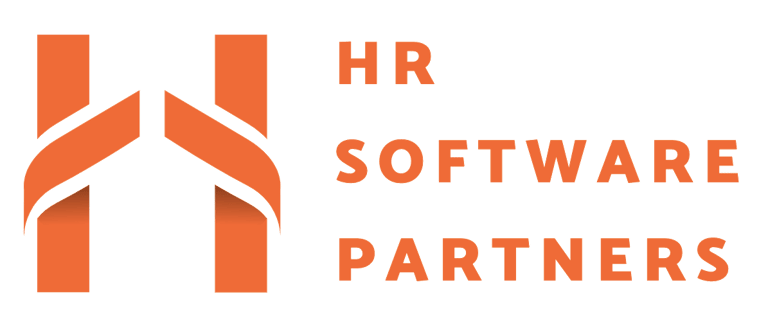The Role of AI in Modern HR Software: Opportunities and Challenges
As artificial intelligence continues to reshape the landscape of various industries, HR is no exception. This article explores the different ways AI can enhance HR processes—from recruitment to employee engagement—while addressing the potential challenges that come with its implementation. By understanding both the opportunities and pitfalls, HR professionals can leverage AI to create a more efficient and effective management strategy.


The Role of AI in Modern HR Software: Opportunities and Challenges
As artificial intelligence continues to reshape the landscape of various industries, HR is no exception. This article explores the different ways AI can enhance HR processes—from recruitment to employee engagement—while addressing the potential challenges that come with its implementation. By understanding both the opportunities and pitfalls, HR professionals can leverage AI to create a more efficient and effective management strategy.
Introduction: The Transformative Power of AI in HR
The world of human resources is undergoing a revolution. Gone are the days when outdated spreadsheets and manual data entry ruled the HR landscape. Today, artificial intelligence is at the forefront of innovative HR solutions, empowering companies to not only streamline administrative tasks but also improve recruitment, employee engagement, and overall compliance with regulations. Imagine a world where routine tasks are automated and HR professionals can focus on strategic initiatives—this is the promise of AI in modern HR software.
AI is more than just a buzzword. It represents a shift towards a data-driven, proactive approach to managing human capital. For fast-growing SMEs in the UK, where every minute counts and compliance is non-negotiable, embracing AI is not just a trend—it's a necessity. As one industry leader boldly states, "Adopting AI in HR isn't about replacing human insight; it's about unlocking potential by automating the mundane."
Chapter 1: Enhancing Recruitment with AI – Predictive Analytics and Automated Screening
The recruitment process is one of the most critical areas where AI can make a dramatic difference. Traditional recruitment methods often involve sifting through hundreds of resumes, manually screening candidates, and scheduling interviews—a time-consuming and error-prone process. With AI, HR software now leverages predictive analytics to flag top candidates, reducing the hiring cycle and ensuring the right talent is identified faster.
Automated screening tools use natural language processing (NLP) and machine learning to analyze candidate profiles against job descriptions. These systems sift through the noise to pinpoint candidates who not only have the skills but also match the company’s cultural and team dynamics. By incorporating AI, your HR team can focus on what matters most: personalized candidate engagement and strategic decision-making.
The benefits of using AI in recruitment are clear:
• Streamlined candidate screening
• Reduced hiring time
• Improved quality of hire
• Enhanced candidate experience
Companies using these tools have reported a significant reduction in bias and a more diverse talent pool, as AI algorithms are fine-tuned to reject irrelevant or biased criteria. It’s a reminder that in the age of fast growth and digital transformation, efficiency and fairness can go hand in hand.
Chapter 2: AI-Driven Employee Engagement – Personalization and Feedback Mechanisms
Employee engagement has become a centerpiece of effective HR management. With remote working and hybrid models now standard, maintaining a strong employee experience is both challenging and critical. Here, AI steps in to offer personalized solutions. HR software powered by AI can analyze employee feedback, monitor engagement levels, and even suggest tailored interventions to boost morale and productivity.
Imagine an AI system that recognizes when a team member is struggling and automatically schedules a check-in or offers personalized learning and development recommendations. Tools such as sentiment analysis and real-time feedback mechanisms can provide HR professionals with actionable insights to improve workplace culture.
A standout feature of modern AI-enabled HR systems is the ability to customize employee experiences. When every team member’s experience is curated based on real-time data, organizations can proactively address issues before they morph into larger problems. As one expert observed, "Personalization through AI is not just a feature—it’s the future of employee engagement."
Features include:
• Automated pulse surveys with instantaneous feedback
• Data-driven insights into employee satisfaction
• Personalized suggestions for development and training
• Enhanced communication between employees and managers
The takeaway? AI is not here to depersonalize HR; it’s here to enhance human connections by freeing up time for meaningful interactions.
Chapter 3: Navigating Challenges – Data Privacy, Ethical Considerations, and Successful Case Studies
No discussion of AI is complete without a candid look at its challenges. As with any transformative technology, the integration of AI in HR brings with it unique concerns, particularly around data privacy and ethical usage. HR software systems must be rigorously designed to comply with GDPR and other data protection regulations. After all, the sensitive nature of employee data cannot be compromised for efficiency’s sake.
Ethical considerations also play a significant role. AI is only as unbiased as the data that trains it. If historical biases are part of the training set, they may inadvertently perpetuate disparities despite the system’s best intentions. It’s essential for companies to continuously audit AI algorithms and ensure transparency in their decision-making processes.
Recent case studies offer encouraging evidence that these obstacles can be overcome. For instance, a leading digital agency in Manchester implemented an AI-powered HR system and witnessed a 30% decrease in recruitment turnaround time, alongside improved compliance with data protection policies. Embracing preventative strategies like regular data audits and fostering an inclusive design mindset can help mitigate potential risks.
Key challenges and solutions include:
• Managing data privacy: Ensuring all AI-driven processes meet UK standards, such as GDPR compliance
• Addressing bias: Regularly reviewing and updating training data to avoid historical prejudices
• Transparency: Clearly communicating to employees how AI tools aid decision-making
In the words of a seasoned HR manager, "Success in AI integration comes from balancing innovation with responsibility." This sentiment underlines the importance of proceeding thoughtfully while championing technological progress.
Chapter 4: The Future of AI in HR – Emerging Trends and Balancing Innovation with Responsibility
Looking ahead, the role of AI in HR is set to expand even further with new trends on the horizon. From increasingly sophisticated chatbots that offer immediate employee support to predictive models that anticipate staffing needs, AI is evolving at a breakneck pace. Future HR systems might not only react to issues but predict them, offering solutions before problems arise.
One emerging trend is the integration of AI with other business-critical systems. Imagine an HR platform that seamlessly interacts with accounting or performance management systems, automatically balancing payroll, tracking productivity, and even flagging potential HR compliance issues. The synergy between these systems means a more holistic view of business operations and better strategic planning.
However, with great power comes great responsibility. The future growth of AI solutions in HR will necessitate advanced ethical frameworks and robust governance models to ensure transparency and fairness. Businesses must continuously evolve their practices, a challenge that falls on both technology providers and HR professionals alike.
As we look to the future, it is clear that AI will remain a cornerstone in driving HR innovations. The proactive approach of modern HR software, as seen with platforms like Factorial HR, provides a blueprint for how technology and human insight can work together. Boldly put, "The future of HR is AI-driven, but its heart remains human."
Chapter 5: Synthesis – Balancing Innovation with Responsibility
In closing, the adoption of AI in modern HR processes offers unparalleled opportunities. The streamlined recruitment processes, enhanced employee engagement, and actionable insights provided by AI are transforming how businesses operate. Yet, these benefits must be weighed against challenges such as data privacy, ethical implications, and the need for ongoing system audits.
For fast-growing SMEs in the UK, implementing AI is more than just keeping up with technological trends—it’s about future-proofing HR operations. By automating routine tasks, ensuring compliance, and promoting a culture of continuous improvement, organizations can turn HR into a strategic function that supports overall business growth.
The takeaway is simple: Embrace AI to gain time back, drive compliance, and enhance the overall employee experience, but always with a vigilant eye on data ethics and privacy. As one HR leader famously remarked, "Innovation means nothing if it's not built on trust."
In conclusion, AI in HR is both a powerful enabler and a catalyst for change. With measured implementation and continual reassessment of ethical practices, companies can harness the full potential of AI while safeguarding employee interests. The transformation is under way—it's time to make HR modern, efficient, and, most importantly, human.
Frequently Asked Questions (FAQ):
1. What role does AI play in modern HR software?
- AI automates repetitive tasks, enhances candidate screening, personalizes employee engagement, and provides actionable insights for better decision-making.
2. How does AI improve the recruitment process?
- AI uses predictive analytics and automated screening to quickly identify the best candidates, reducing bias and shortening time-to-hire.
3. Can AI help with employee engagement?
- Yes, AI tools analyze feedback, monitor sentiment, and offer personalized solutions to boost engagement and improve work culture.
4. What are the main challenges of implementing AI in HR?
- Key challenges include data privacy concerns, ethical implications of biased algorithms, and the need for transparency in decision-making.
5. How does GDPR impact the use of AI in HR?
- AI-driven HR systems must comply with GDPR by implementing robust data protection measures to safeguard sensitive employee information.
6. Are there any successful case studies of AI in HR?
- Absolutely. Many organisations have reported improvements in recruitment turnaround times and compliance due to the adoption of AI-powered HR platforms.
7. What future trends can we expect in AI and HR?
- Future trends include enhanced integration with other business systems, predictive analytics for workforce planning, and even more personalized HR solutions.
8. Is the integration of AI in HR only beneficial for large companies?
- Not at all. Even SMEs can benefit from AI by streamlining processes, reducing overhead, and improving overall HR strategy.
9. How can companies mitigate bias in AI algorithms?
- Regularly auditing AI systems and using diverse, representative training data can significantly reduce bias in AI-driven decision-making.
10. What is the best way to start implementing AI in HR?
- Companies should begin with a clear strategy, pilot programs in key areas like recruitment or engagement, and partner with specialists to ensure compliance and ethical practices.
Modern HR for modern teams. Book your free HR tech consultation today and discover how our AI-powered Factorial HR can transform your HR operations!
